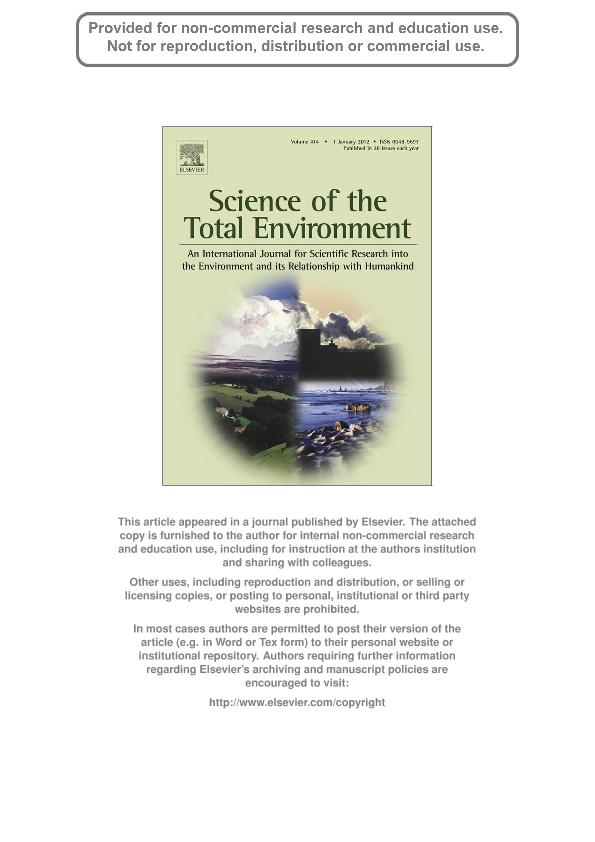Artículo
Short-term effects of combined iprodione and vermicompost applications on soil microbial structure
Fecha de publicación:
01/01/2012
Editorial:
Elsevier Science
Revista:
Science of the Total Environment
ISSN:
0048-9697
e-ISSN:
1879-1026
Idioma:
Inglés
Tipo de recurso:
Artículo publicado
Clasificación temática:
Resumen
The use of compost amendments to bioremediate potential organic pollutants in agricultural soils has recently become an increasingly important field of research. Although several fungicides have been extensively used to control a wide range of soil-borne fungal diseases, little is known about the impact of applying these pesticides on the structure and function of microbial communities in soils amended with vermicompost. The aim of this study was to evaluate the effect of a combined treatment of iprodione and vermicompost on soil microbiological parameters under laboratory conditions. The study was carried out on agricultural and grassland soils to identify the effect of iprodione application at field rate (FR) and 10-times FR (10 FR) with and without vermicompost (VCH) on iprodione breakdown, fluorescein diacetate activity (FDA), total fatty acid methyl ester (FAME) profiles, total protein content, and protein profiles by using sodium dodecyl sulphate-polyacrylamide gel electrophoresis (SDS-PAGE). Our results indicate that the addition of vermicompost decreased the iprodione breakdown at days 30 and 60 in non-sterilised agricultural soil and at 60 days in sterilised and non-sterilised grassland soil. Independent of vermicompost amended treatments, iprodione was found to mainly alter microbial communities after 30 days of incubation. On day 30, separation between communities treated with iprodione 10 FR and iprodione 10FR + VCH treatments were well defined in both agricultural and grassland soils. Within each soil type, our results showed no difference in the total protein content. However, the protein content in the grassland soil was clearly higher than in the agricultural soil. SDS-PAGE gels revealed that the treatments applied to the agricultural soil using iprodione at the highest dosages (iprodione 10FR and iprodione 10FR+VCH) resulted in an alteration of the band pattern. In conclusion, the experiments revealed that the addition of vermicompost may decrease the breakdown of iprodione in soils. Furthermore, elevated dosages of iprodione may potentially affect the microbial community structure and diversity of the soil, which may lead to the deterioration of soil quality and fertility.
Archivos asociados
Licencia
Identificadores
Colecciones
Articulos(IMBIV)
Articulos de INST.MULTIDISCIPL.DE BIOLOGIA VEGETAL (P)
Articulos de INST.MULTIDISCIPL.DE BIOLOGIA VEGETAL (P)
Citación
Verdenelli, Romina Aylen; Lamarque, Alicia Luz; Meriles, Jose Manuel; Short-term effects of combined iprodione and vermicompost applications on soil microbial structure; Elsevier Science; Science of the Total Environment; 414; 1-1-2012; 210-219
Compartir
Altmétricas




